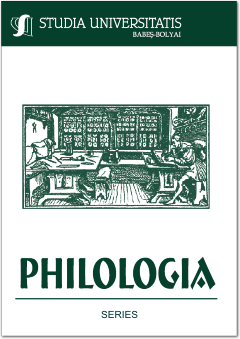ICH-DISSOZIATION – APOKALYPSE – ÄSTHETIK DES HÄSSLICHEN. EINFLUSS DES DEUTSCHEN LITERARISCHEN EXPRESSIONISMUS’ AUF DIE FRÜHE LYRIK VON ROBERT REITER
DISSOCIATION OF THE SELF – APOCALYPSE – THE AESTHETIC OF UGLINESS. THE INFLUENCE OF GERMAN LITERARY EXPRESSIONISM ON THE EARLY LYRICAL WORK OF ROBERT REITER
Author(s): Réka JakabháziSubject(s): Comparative Study of Literature, German Literature
Published by: Studia Universitatis Babes-Bolyai
Keywords: Expressionism; Robert Reiter; dissociation of the self; apocalypse; aesthetic of ugliness;
Summary/Abstract: Dissociation of the Self – Apocalypse – the Aesthetic of Ugliness. The Influence of German Literary Expressionism on the Early Lyrical Work of Robert Reiter. The present paper focuses on the influence of German literary Expressionism on the early lyrical work of Robert Reiter. In his early period, Robert Reiter took inspiration from the formal language of German Expressionism, as well as from the notion of subjective expression or the dissociation of the self associated with it. He used the apocalypse-motif and the ideal type known as the “New Man,” and practised an “aesthetics of the ugly”, which played a central role in Expressionist literature. To support this thesis, this article analyses the early work of the poet in light of contemporary avant-garde tendencies, with a focus on the poem Terhes hajnalban [In Pregnant Dawn].
Journal: Studia Universitatis Babes-Bolyai - Philologia
- Issue Year: 66/2021
- Issue No: 3
- Page Range: 49-60
- Page Count: 12
- Language: German

